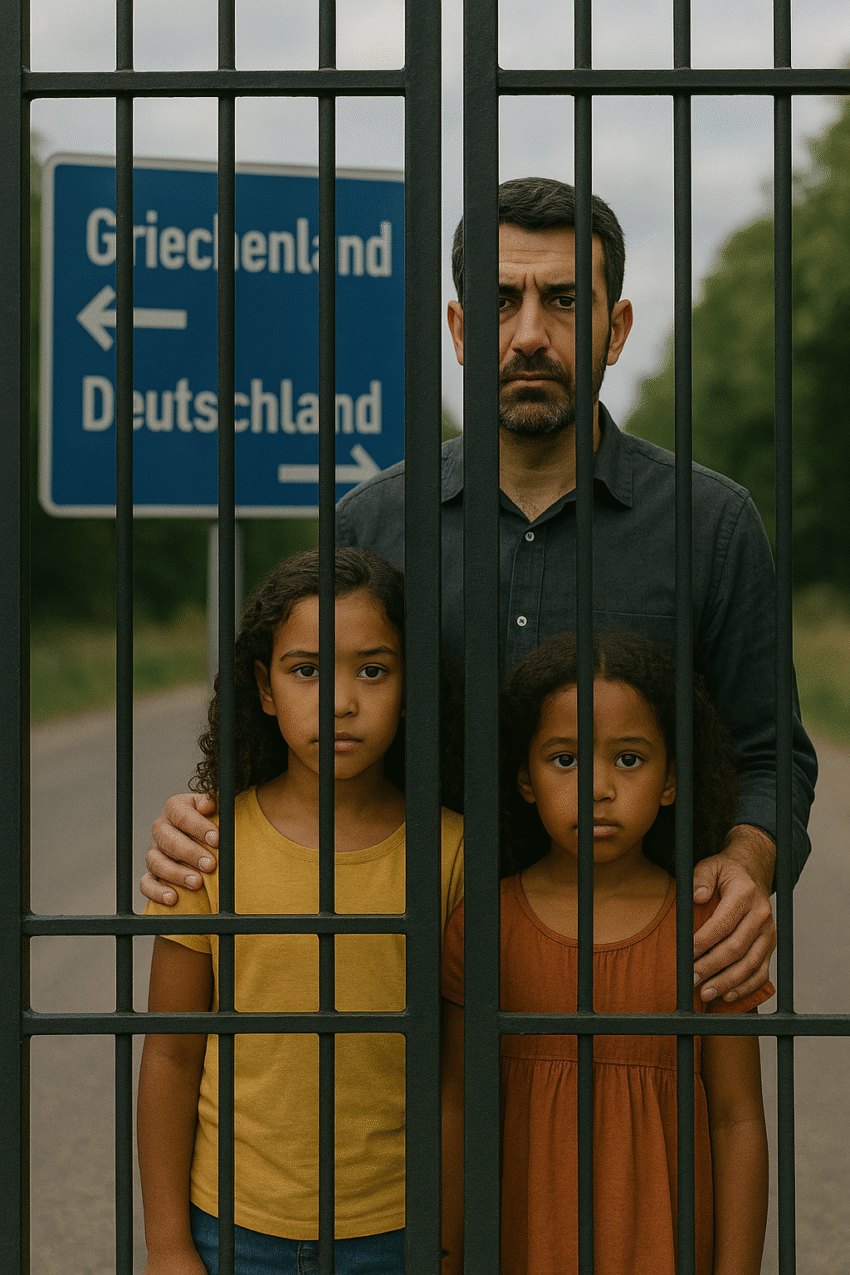A Custody Ruling That Closed Every Door
In 2023, after years of unanswered letters, failed embassy visits, and legal silence, I finally received a decision from a German family court. It confirmed what had always been true: that I am the primary caregiver of my daughters, and that I have the authority to make decisions regarding their education, health, and legal matters.
I should have felt relief.
But instead, I felt trapped.
When Winning Still Means Losing
The ruling acknowledged my parental role — but it came with a catch: I was not allowed to change my children’s place of residence without the mother’s consent. That meant we could not return to Greece. And without going to Greece, we could not finalize the citizenship process.
Germany had now taken full control of the situation — but provided no solution.
The Greek system required a simple affidavit, to be signed in Athens.
The German system refused to help, and also refused to let us leave.
So we remained stuck — with a “victory” that solved nothing.
The Paper Trap
The most bitter irony: the German decision was supposed to protect my children.
Instead, it became the very reason they remained stateless.
Because I had legal custody but was locked in a country that would not coordinate with Greece — I could not fulfill the legal requirements of either system.
The court acknowledged the facts, but avoided the consequences.
This wasn’t justice. This was paperwork replacing humanity.
🡒 I will still describe how I attempted to address the legal gap by seeking help — and how the response I received from public institutions in Germany was silence.

